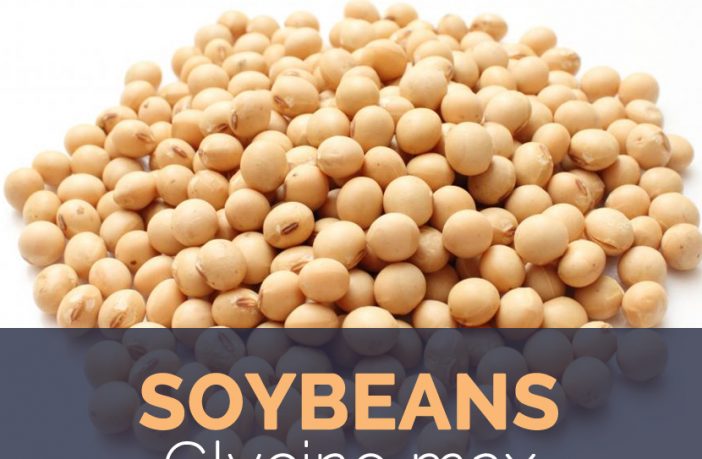How Saudi’s interest in Nigeria’s soybeans triggers price rise
When it became public that Saudi Arabia expressed interest in importing 200,000 tonnes of red meat and one million tonnes of soybeans annually from Nigeria as the latter seeks a sustainable trade relationship with the Kingdom, attention of traders and merchants shifted to soybeans. As announced in June 2024 by the Minister of Agriculture and […]

When it became public that Saudi Arabia expressed interest in importing 200,000 tonnes of red meat and one million tonnes of soybeans annually from Nigeria as the latter seeks a sustainable trade relationship with the Kingdom, attention of traders and merchants shifted to soybeans.
As announced in June 2024 by the Minister of Agriculture and Food Security, Abubakar Kyari, Nigeria has been seeking to diversify its exports from the dominant oil and gas sectors to promote non-oil exports.
He explained that Nigeria was seeking partnership in trade to earn foreign exchange after it suffered severe dollar shortages that harmed its economy and caused the local currency to hit record lows.
In Nigeria, soybeans production has continued to rise, but the country’s demand for the oilseed is expanding for both food and feed use. This development has made the commodity very expensive and scarce, even before the expression of interest from the Saudis.
- Students’ innovation: Lower-cost irrigation system for smallholder farmers underway
- Attractive price: Taraba farmers engage in sesame irrigation farming
According to a June 25 Global Agricultural Information Network report from the US Department of Agriculture (USDA), Nigerian soybeans production has recorded a huge increase index in the last four years. The USDA estimated that an area harvested a huge increase in soybeans production in the country
However, with the increase in demand within and outside Nigeria, production has majorly suffered a setback in northern states because of security challenges resulting from the activities of insurgents and conflict between pastoralists and farmers.
This development, coupled with high demand, has contributed to the recent scarcity and hike in the price of soybeans in Nigeria.
Our correspondent gathered that with the recent announcement by the minister of agriculture, there was mad rush for soybeans in the country.
A soybeans merchant at the Dawanau International Grain Market, Alhaji Usman Baffa Kwana Hudu, pointed out that many have ventured into the business, creating a serious competition.
“They created a serious competition, such that those of us in the business are strongly battling to survive it. They are everywhere mopping up the commodity and hoarding it. Everyone is now looking for soybeans; that is why we are currently battling with the price. It will reach an extent that soybeans will no longer be accessible to ordinary citizens,” he revealed.
A check by Weekend Trust revealed that a 100kg bag of soybeans sold at N40,000 last year is now selling at over N100,000; and even at that, the commodity is scarce.
With the rising demand, soybeans meal has become the dominant and preferred protein ingredient in poultry feed rations, and due to demand and high cost, the price has surged, resulting to high cost of birds.
Recent findings also revealed that the scarcity and high cost of the commodity forced many poultry farmers to go for low quality substitutes, such as peanut cake, cottonseed and palm kernel meal.
Also, leading infant food manufacturers in the country that require soybeans because of its high nutritional value are affected by this growing demand as it is also processed into flour and oil used for domestic cooking, cosmetics and soap making.
Households, especially among rural low-income groups that cannot afford animal protein sources, such as meat, fish, eggs and milk, also use soybeans for human consumption.
It could be recalled that in the early 1990s, the International Institute of Tropical Agriculture (IITA) promoted the use of protein-rich soybeans in everyday foods to curb malnutrition. Since then, the commodity became widely consumed and readily used in the production of soymilk, cake, yogurt and the fortification of a local carbohydrate-based Nigerian food.
But the Kano State chairman of the All Farmers Association of Nigeria (AFAN), Alhaji Abdulrasheed Magaji Rimin Gado, said Nigeria’s soybeans production could not meet internal demand, adding that with the current mad rush, the commodity will soon be out of reach for common citizens.
He said there’s need for research institutions and government agencies to come up with a variety that can be cultivated during the dry season to complement the gap already created.
A market survey conducted by Weekend Trust revealed that the price of by-products of soybeans has gone up as well. For instance, a bottle of soybeans oil sold at N1, 300 last year is now selling at N2,600.
